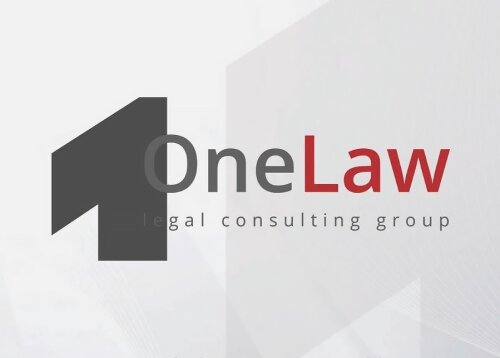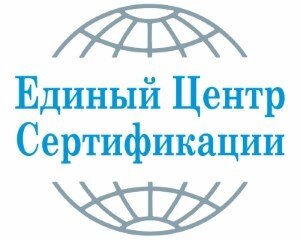Best Mining Law Lawyers in Yekaterinburg
Share your needs with us, get contacted by law firms.
Free. Takes 2 min.
List of the best lawyers in Yekaterinburg, Russia
About Mining Law in Yekaterinburg, Russia
Mining Law in Yekaterinburg, Russia, governs the exploration, extraction, and processing of mineral resources within the region. As an industrial hub in the Ural Mountains known for its rich mineral deposits, Yekaterinburg operates under the broader framework of the Russian Federation’s Mining Legislation, with specific attention to local administrative and environmental controls. This legal area encompasses the rights and responsibilities regarding land use, licensing, subsoil use agreements, taxation, health and safety, and environmental protection in mining activities.
Why You May Need a Lawyer
Mining Law in Yekaterinburg can be complex due to overlapping federal, regional, and municipal regulations. You may need a lawyer for various reasons, such as:
- Securing and negotiating mining licenses or subsoil use rights
- Understanding and adhering to environmental and safety regulations
- Handling disputes related to land use, property boundaries, or ownership of extracted minerals
- Dealing with governmental inspections, fines, or penalties
- Structuring joint ventures and investment arrangements
- Preparing or reviewing contracts with suppliers, contractors, or state authorities
- Addressing community or indigenous rights issues
- Managing liability for environmental damage or remediation
Whether you are a company planning to start mining operations, an investor, or a landowner affected by mining, seeking professional legal guidance can help protect your interests and ensure compliance.
Local Laws Overview
The core legal framework for Mining Law in Yekaterinburg includes the Russian Subsoil Law, federal laws, and various regional decrees. Some important aspects to understand are:
- Licensing - All subsoil use, including exploration and production, requires government-issued licenses. These licenses specify the term, allowed activities, and operating conditions.
- Environmental Regulations - Mining activities must comply with strict environmental protection standards, including obtaining environmental impact assessments and using approved technologies to minimize harm.
- Taxation and Royalties - The extraction and processing of minerals is subject to state duties, taxes, and royalties, which must be calculated and paid according to the relevant laws.
- Land Use and Property Rights - Mining often involves negotiating with landowners and understanding overlapping land and subsoil rights. Specific resolutions may be required for land allocation or compensation.
- Local Administration - The regional government of Sverdlovsk Oblast (where Yekaterinburg is located) may set additional conditions for mining activities relating to employment, local economic benefits, or social contributions.
Non-compliance can result in license revocation, administrative penalties, or even criminal liability.
Frequently Asked Questions
What is required to start mining in Yekaterinburg?
You must obtain a subsoil use license from the appropriate authorities, conduct environmental assessments, and comply with land use and safety regulations before conducting any mining activities.
Who issues mining licenses in Yekaterinburg?
Mining licenses are generally issued by federal authorities (Ministry of Natural Resources and Environment of the Russian Federation) but may also require coordination with regional bodies in Sverdlovsk Oblast.
Do I need environmental approval to mine?
Yes, an environmental impact assessment is mandatory. You must prepare appropriate documentation and receive approval before beginning any mining or exploration work.
How long does a mining license last?
The term of a license can range from a few years (for exploration) to several decades (for extraction), depending on the scope of work and resource type.
Can foreigners own mining rights in Yekaterinburg?
Foreign entities may obtain mining rights, though special procedures and restrictions apply, especially for subsoil plots of federal significance.
What taxes or fees apply to mining operations?
Mining companies must pay subsoil-use fees, royalties based on extracted volumes, income taxes, and other statutory payments required by both federal and regional authorities.
What happens if mining damages the environment or local communities?
The responsible party must compensate for damages, remediate the site, and may face fines or criminal charges if laws are violated.
Can I challenge a mining license decision?
Yes, license decisions can be appealed through administrative channels or in court if you believe there are grounds (such as procedural violations).
What are the key obligations of mining right holders?
Key obligations include strict adherence to license terms, reporting on activities, paying required taxes and fees, maintaining safety standards, and observing environmental laws.
Do local communities have any role in mining projects?
Yes, Russian law provides for community participation in environmental impact assessments and project discussions, especially when projects may affect their interests.
Additional Resources
If you need more information or assistance relating to Mining Law in Yekaterinburg, consider contacting the following resources:
- Ministry of Natural Resources and Environment of the Russian Federation
- Federal Agency for Subsoil Use (Rosnedra)
- Ministry of Industry and Science of Sverdlovsk Oblast
- Sverdlovsk Oblast Environmental Protection Committee
- Local bar associations and specialized law firms in Yekaterinburg
- Chamber of Commerce and Industry of the Russian Federation (Ural office)
- Legal aid centers and independent environmental organizations
Next Steps
If you think you need legal assistance related to Mining Law in Yekaterinburg, consider taking the following steps:
- Gather all related documents, such as contracts, licenses, correspondence, and maps
- Identify the specific legal question or problem you are facing
- Contact a licensed lawyer specializing in Mining Law or natural resources in Yekaterinburg
- Schedule an initial consultation to discuss your situation and possible strategies
- Follow your lawyer’s advice regarding communication with authorities, compliance, or dispute resolution
- Regularly check for updates in laws and regulations to ensure ongoing compliance
Addressing mining legal issues early and with professional support can help safeguard your business interests, ensure compliance, and avoid costly mistakes or penalties.
Lawzana helps you find the best lawyers and law firms in Yekaterinburg through a curated and pre-screened list of qualified legal professionals. Our platform offers rankings and detailed profiles of attorneys and law firms, allowing you to compare based on practice areas, including Mining Law, experience, and client feedback.
Each profile includes a description of the firm's areas of practice, client reviews, team members and partners, year of establishment, spoken languages, office locations, contact information, social media presence, and any published articles or resources. Most firms on our platform speak English and are experienced in both local and international legal matters.
Get a quote from top-rated law firms in Yekaterinburg, Russia — quickly, securely, and without unnecessary hassle.
Disclaimer:
The information provided on this page is for general informational purposes only and does not constitute legal advice. While we strive to ensure the accuracy and relevance of the content, legal information may change over time, and interpretations of the law can vary. You should always consult with a qualified legal professional for advice specific to your situation.
We disclaim all liability for actions taken or not taken based on the content of this page. If you believe any information is incorrect or outdated, please contact us, and we will review and update it where appropriate.










